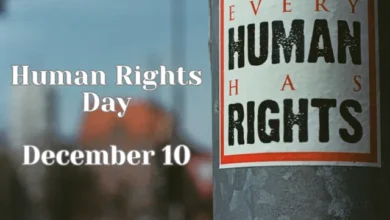“The Issue is Not the Internet or Its Influence: The Crisis of Demoralized Masculinity and Why Adolescence Misses the Mark on Youth Issues” Jordan Peterson

Preface:
In an era where young people are increasingly shaped by digital culture, the questions surrounding their mental health, values, and well-being are more pressing than ever. The Netflix series Adolescence, which explores the life of a 13-year-old boy deeply affected by misogynistic and violent online content, has sparked widespread attention and controversy. With its focus on the influence of the internet and toxic masculinity, the series has become a symbol of the concerns many have about how digital media is affecting today’s youth. Now, as calls grow to introduce it into school curriculums, the conversation surrounding the show has become even more urgent.
This excerpt is transcribed from an interview between Piers Morgan and Jordan Peterson on Piers Morgan Uncensored on YouTube, where Peterson presents a compelling argument about the real issues facing young people today. Peterson’s critique of Adolescence is pointed: he believes the series fails to address the root cause of the problems young people are grappling with. Instead of focusing on the internet and its influences, which he calls a distraction, Peterson argues that the true crisis lies in the demoralization of masculinity.
For Peterson, the real issue is the systematic undermining of young men’s confidence and purpose in modern society. Over the past 60 years, he asserts, a cultural agenda has steadily dismantled traditional expressions of masculinity, labeling them as harmful, toxic, or oppressive. From schools that penalize boys for being active and competitive to a society that dismisses their emotional and psychological needs, young men have been taught to question their own ambitions and desires. Peterson believes this demoralization has left many young men directionless, struggling with feelings of inadequacy, resentment, and bitterness.
The focus on internet culture in Adolescence is, in Peterson’s view, a symptom of a much larger issue. The true danger lies not in the content of the internet itself, but in the broader cultural forces that have eroded the sense of responsibility, integrity, and purpose in young men. Adolescence, as Peterson argues, is “putting the cart before the horse” by addressing the symptoms, such as the online radicalization of young boys, without ever considering the root cause: the ideological assault on traditional masculinity that has left many young men vulnerable to toxic influences.
Peterson’s critique goes further, pointing out that this demoralization of young men also has profound consequences for young women. As young men become increasingly disillusioned with their role in society, Peterson warns, the societal fabric itself begins to fray. This shift, he argues, creates a dangerous and destabilizing cycle, where both young men and women are left disconnected from one another, unable to form meaningful relationships or contribute positively to society.
Ultimately, Peterson calls for a reevaluation of how we approach masculinity, both in media and in broader cultural discourse. Rather than demonizing it, he advocates for a more balanced and responsible understanding that empowers young men to step into leadership, responsibility, and positive competition. Only by addressing the deep-seated cultural demoralization of masculinity, Peterson argues, can we begin to resolve the crises young people are facing today.
As you read this interview excerpt, it’s important to recognize that the discussion around Adolescence is not merely about a TV show; it is part of a much larger conversation about the direction of our culture and how we shape the next generation. Peterson’s insights challenge us to look beyond the surface-level issues and confront the deeper cultural forces that are shaping the lives of young people today. The question is not just about how we address internet culture or toxic masculinity, but how we can restore a sense of purpose and responsibility to the youth, particularly young men, who are most in need of guidance in these turbulent times.
The Interview
Piers Morgan
This Netflix drama phenomenon Adolescence, which is really in your wheelhouse I think, Jordan, because it follows a 13-year-old boy who is suspected of killing a young girl, and he’s been adversely influenced, affected by what he’s seen online, some pretty extreme stuff, a lot of misogyny. He’s portrayed as a young incel and so on. There’s now a move to have this series shown in schools. It’s been a huge hit in the UK, and America, and everywhere else. And I don’t know if you’ve seen it yet, but you’ve probably seen the coverage of it. What do you make of the fact that it’s been so successful, and the premise behind it — that we’re basically having an epidemic at the moment of young boys, in particular, whose brains are getting scrambled by pretty vile stuff online?
Jordan Peterson
Well, look, there is a crisis of youth, both among young men and young women. And with young men, it’s a consequence of the fact that they’ve been programmatically demoralized for 60 years. I would say their play preferences in schools are not favored. Boys tend to be more active, and they’re taught that competition is wrong by utter fools who don’t understand that peaceful competition in game-like settings is actually an advanced form of cooperation that socializes aggression. They’ve been taught that their ambition is nothing but a manifestation of the oppressive patriarchy. They’ve been taught that all of their attraction towards women is to be regarded with extreme skepticism because fundamentally they’re nothing but, you know, would-be rapists. And you know, all of that has an effect.
I’ve seen that, and it’s been painful to see. I’ve been struck to the core over the last six years as my influence has grown to see just exactly the scope of demoralization among young people. Talk about men first, all around the world, and also, Piers hurt as well by the observation that many of these young men can be set right with not much more than some truly encouraging words. And you know, that exaggerates the pain because the problem is deep, and the solution isn’t that complex or difficult, and you don’t need that much of it.
I warned back in 2016 about this assault on masculinity. I said, “You people, you keep pushing, you’re going to find out. You think strong men are a problem? You wait till you produce weak men who are resentful and bitter because of their failure, and you’re going to see real trouble, and you’re going to see people turn.” Well, this is happening to some degree because one of the most popular influencers in the world among young men is Andrew Tate. And I wouldn’t hold out much hope for the West if Andrew Tate is the direction that young men go, because he’s a bad actor, right to the core.
But the thing about someone like him is that if you’re weak and dependent and demoralized by your culture, let’s say, and you’ve fallen into that isolated trap, someone blustery and successful on the surface, and aggressive, you know, and dominating in the power-mad way that Andrew Tate is, is going to look pretty attractive compared to your infantile dependency.
And the other thing about that, Piers, is there’s some truth in it because it’s actually better to be a bit of a monster than a complete bloody lamb, you know, a passive lamb. And there’s… this is why, for example, I’ll give you an example. So, in The Lord of the Rings, for example, when Bilbo the Hobbit decides that he’s gonna stop being, you know, hyper-protected, the first thing he has to do is join this band of miscreants and become a bit of a thief. There’s a bit of a darkness that has to be incorporated into men before they can mature, before they can stop being children.
There are different pathways that men can take. It can take that blustery, quasi-psychopathic route that characterizes people like Andrew Tate, you know, and the hypermasculinity that goes along with that. Or it can be truly civilized and socialized so that men can become civilized and staunch competitors who are moving forward implacably in the world. That’s much more complicated to manage, right? Because that’s the true path of civilization, the self-sacrificial path of true civilization, an alternative to near-utilization, like say, a power or degeneration into hedonism.
But we’ve decided in our culture that we’re gonna throw the baby out with bathwater, and that everything about the patriarchy is pathological. And the consequence of that is that we’re demoralizing young men. Now, that also turns out to be very bad for young women, because they might even be in worse shape than young men.
So, you get a show like Adolescence, and it does target in some way one element of the problem, although it’s ill-formed in its psychological analysis. There are much greater threats, let’s say, to the integrity of British culture, as Kemi Badenoch pointed out this week, than what violent incel culture is. Really, Piers, there’s pretty much none. I’m not saying that that isn’t a lurking psychological danger, and I think the Andrew Tate phenomenon points to that, but you guys in the UK, and maybe everyone in the West more broadly, we have more serious things to consider than, you know, what conspiratorial incels… You know, I mean, let’s even take the Muslim extremist front, shall we? I mean, even countries like the UAE and Saudi Arabia have been insistently warning the West that their true danger from Islamism is going to come from Europe and the UK in the future, not from places like the UAE and Saudi Arabia, which have already become alert to the threat.
And for those who, you know, might want to call me racist for pointing such things out, it’s like, well, the UAE and the Saudis, you know, they know what they’re talking about when it comes to such things. So, we could dispense with that right away. And Kemi Badenoch, I would say, put her finger on the true problem, or at least one of the true problems here. Keir Starmer, he’s just playing that typical leftist game. You know, that it’s toxic young masculinity, and particularly of the Caucasian version, which is really quite the insane claim, that that’s the thing that young people should be taught more about because obviously, they’re not demoralized enough yet.
So, that’s what I think about Adolescence. Jesus, talk about putting the cart before the horse, and it’s exactly what you’d expect from the progressive playbook. It’s like, “We’re going to double down on the incels!” Well, why don’t you give some thought to trying to figure out why they’re so bloody isolated? Why young men and women are so isolated from one another now that they don’t even date, they don’t drive, they don’t drink, they don’t go out, they don’t date, they don’t marry. Why is that? Well, how about because it’s about 60 years of radically demoralizing, quasi-feminist, dimwit, hedonistic leftist propaganda shoveled at them from Grade 1 all the way through university? And of course, they’re going to turn to figures like Andrew Tate in their desperation. But you know, you might as well do a causal analysis and try to figure out why they’re so bloody demoralized to begin with.
Jordan Peterson continues
And I would say we know something about that because I think I’ve talked to more demoralized young people in the last 10 years than anybody on the planet. I’ve watched and seen what works, and, ah, more demoralization is not the answer. You know, there’s something remarkable about well-socialized masculinity. One of the things I learned, for example, when I was writing my last book, was the symbolic use of the figure of the shepherd in the biblical corpus. The shepherd figure is prominent both in the Old Testament and in the New Testament, and the reason for that is because a shepherd is a very good symbol of well-socialized ordinary masculinity.
So, shepherds in the Middle East had to live by their own wits in the wilderness. They were tough guys, and they had to keep the wolves and lions at bay with pretty primitive weapons, as exemplified in the story of Moses and in the story of David, for example. But at the same time, they had to protect the most vulnerable. A lamb is a pretty good example of something vulnerable and edible, especially by monsters.
So, the model for masculinity, the biblical model for masculinity, at least in part, is tough enough to keep the bloody wolves and lions at bay, resourceful enough to survive on your own, and devoted to caring for the most vulnerable. That’s a pretty damn good model, and it’s certainly exemplified well, of course, by the figure of Christ in the New Testament, who is the meta-shepherd, you might say. He is capable of keeping the worst evils at bay while simultaneously serving the most alienated and vulnerable.
And that’s the right model for masculinity. If you don’t think that exists, well, you’re definitely part of the problem and not part of the solution. Maybe you’re a woman who’s been damaged by men who’ve entered your life—who are radically immature or mad users of power—and that’s really sad. There’s plenty of that too. But that doesn’t mean that, at its core, there’s something pathological about masculinity.
And it certainly doesn’t mean that the radical leftist proclivity to describe everything as an oppressive patriarchy and to make men weak is doing anything other than hurting young people right to the core. Starmer’s posturing with regards to Adolescence is only going to make that worse. It’s bad psychology. And it’s not only that; it’s also oriented not to help young people but to make Mr. Starmer feel a hell of a lot more secure in the idiot presumptions of his dimwit progressivism. So, that’s really the fundamental aim. It’s like, how can we show we’re right? And if we have to burn some young people on the pier to make sure that our moral presuppositions can remain intact, and our faith in our idiocy remains unchallenged, then we might as well teach kids using a Netflix series on Adolescence.
Jesus, brutal, pathetic to the core. It’s a terrible moral posture. That’s, I think, the most pathological element of our age. How can we garner as much undeserved moral credit as we possibly can? Well, we’ll stand up against toxic masculinity and we’ll worship the planet. And now, God… It’s so appalling, so destructive.
And the evidence is also in, Piers. Look at Germany, for God’s sake. What a mess. And you guys in the UK, you’re not much better. We’re walking down the same road in Canada, too. Western Europe as a whole, well, I’ve gone through Eastern Europe many times now and talked to many Eastern Europeans there. They’re appalled at what’s happening in the West, and rightly so. It’s all part of the same mess that Starmer is still pushing. You know, race to the bottom, Christ.
Here is the link to the full interview with Piers Morgan and Jordan Peterson. This portion is highlighted from the 36:45-minute mark:
Do have an INSPIRED rest of the week with the family.





